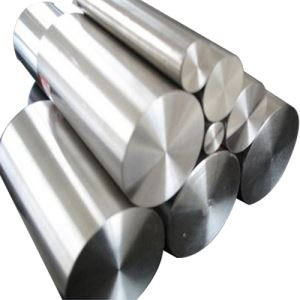
Titanium alloy TC10 (Ti-6Al-6V-2Sn-0.5Cu-0.5Fe) is an α-β type titanium alloy with excellent strength, corrosion resistance, and moderate welding and fabrication capabilities. It is widely used in fields such as rockets, aircraft casings and artillery parts.
Titanium alloy TC10 improves its performance by adding elements such as aluminum (Al), vanadium (V), tin (Sn), copper (Cu) and iron (Fe). The addition of these elements gives TC10 alloy higher strength and corrosion resistance.
TC10 alloy can be heat treated to improve its ductility and strength. The heat treatment process can adjust the crystal structure and phase transformation of the alloy to achieve the desired material properties.
Chemical composition of TC10 titanium alloy
Fe | C | Cu | N | V | Al | Sn | H | O | Other single | Total other | Ti: |
0.35-1 | ≦0.08 | 0.35-1 | ≦0.04 | 5.5-6.5 | 5.5-6.5 | 1.5-2.5 | ≦0.015 | ≦0.2 | ≦0.1 | ≦0.4 | margin |
Mechanical properties of TC10 titanium alloy
Specified residual elongation stress σr0.2/MPa≥825,
elongation δ5(%)≥10
Characteristics of TC10 titanium alloy
TC10 titanium alloy has the following characteristics:
High strength characteristics: Compared with TC4 titanium alloy, TC10 titanium alloy adds elements such as vanadium, iron and copper, so it shows higher strength. Higher strengths can be obtained by heat treating, typically found in annealed conditions or heat treated to higher strength solution treated and aged conditions.
Sacrifice in weldability and ductility: Although TC10 alloy has higher strength than Ti-6Al-4V alloy, it sacrifices in weldability and ductility. Therefore, in most cases, TC10 is not recommended for welding. However, it can be machined relatively easily by using low cutting speeds, high feed rates, sharp tools, and ample cutting fluid.
Hot Forming and Cold Forming: TC10 titanium alloy can be processed by hot forming or cold forming, and its response is similar to that of 300 series stainless steel. Commonly used forming methods include hydroforming, drawing or drop hammer.
Solid solution strengthening treatment: After solid solution strengthening treatment, the strength of TC10 material does not increase much, usually around 1100MPa. In the annealed state, its strength is generally around 900MPa.
Uses of TC10 titanium alloy
TC10 titanium alloy is a common titanium alloy that has many advantages and is therefore widely used in many fields.
In the aerospace field, TC10 titanium alloy is often used to manufacture aircraft structural parts, engine parts, turbine blades, etc. Its high strength and corrosion resistance make it one of the ideal materials for the aerospace industry.
In the petrochemical industry, TC10 titanium alloy is often used to manufacture corrosion-resistant pipes, storage tanks, heat exchangers, reactors and other equipment. It is resistant to various corrosive media, including acids, alkalis, salt water, etc., so it performs well in harsh working environments.
In the shipbuilding industry, TC10 titanium alloy is often used to manufacture ship hull structures, ship equipment and seawater treatment systems. Its resistance to seawater corrosion makes it ideal for use in marine environments.
In the automotive industry, TC10 titanium alloy is commonly used in the manufacture of engine parts, exhaust systems and chassis components. Its lightweight and high-strength properties help improve a vehicle’s fuel efficiency and performance.
In the medical field, TC10 titanium alloy is commonly used in the manufacture of artificial joints, dental implants and surgical instruments. It has good compatibility with human tissue, good biocompatibility and corrosion resistance.
In short, TC10 titanium alloy has been successfully used in many fields such as aerospace, petrochemicals, shipbuilding, automobiles, and medicine due to its excellent corrosion resistance, light weight, high strength, and good processing properties.

